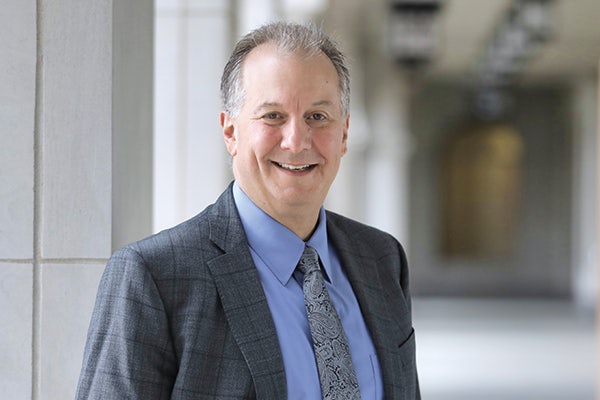From the dean: The Engineering advantage
McKelvey Engineering at WashU has two distinct, yet related, missions: education and research. But there also is a third mission: innovation

To the casual observer of universities — or even someone with an undergraduate degree — it seems clear what we do: educate students. For most of my academic career, when I sat down in an airplane and struck up a conversation with a neighboring passenger, it would eventually come out that I was a professor. And the response was always the same: “Really? What do you teach?”
Of course, if you are a regular reader of our Momentum magazine — or even if this is your first time skimming through its pages — you are well aware that McKelvey Engineering at WashU has two distinct, yet related, missions: education and research. We arm students with the knowledge derived from decades — actually centuries — of exploration, and we also produce new knowledge. In this issue, you will read about a new degree program in data science for our undergraduates, as well as a story aboutour instructors teaching basic computer science to people in prison. On the research front, you can read about a new grant to support advances in designing microbes to mitigate water pollution or about inventing new hydrogels to treat wounds. And you will read about our junior faculty winning prestigious CAREER Awards from the National Science Foundation — these awards are celebrated nationally and validate that these are rising stars who are advancing their fields in fundamental ways.
But as an engineering school, there is another mission. And that is innovation. A perhaps trite but useful saying is that “Research turns money into ideas; innovation turns ideas into money.” Research is typically about exploring the unknown — creating knowledge that provides insight as to how something in nature works or how it might be possible to intervene. Research tends to be “curiosity-driven” — there is a phenomenon to be understood or a new capability to be developed. When embarking on research, we don’t really know how it will turn out. That is what makes it compelling and, frankly, fun.
Innovation, on the other hand, is almost always problem-driven. The challenge is to take fundamental knowledge of phenomena and capabilities and solve a problem whose solution will have an impact on the world. And while all scientists are researchers, engineers have the capacity to be innovators. We discover new ways to achieve an effect, and we can apply that capability to solve previously intractable problems. In this issue, you will read about a collection of McKelvey Engineering faculty — all of whom are successful researchers — taking on the role of innovator. They have learned along the way that being successful in innovation is no easier — in fact, it is often harder — than being a successful researcher. The myriad constraints that determine whether a particular idea is successful in the world and, especially, in the marketplace, stretch our faculty beyond the domains of pure science and engineering. Our research creates new ideas; our innovation creates impact. In McKelvey Engineering, our mission is to achieve both.
And if there is money made, I know a great institution they can now support!
Back to Engineering Momentum